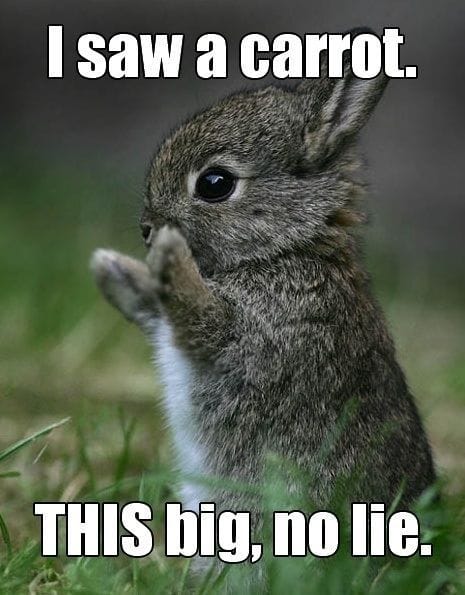In June 2024, Telegram channels spread news about a study by Canadian scientists: they allegedly proved that workers distracted by watching memes work more efficiently. We decided to check whether such posts are true.
A Canadian study allegedly involving 500 participants was reported “Ax 18+"(2 million views at the time of writing the analysis), "Media Russia is not Moscow"(249,000), "Ax – Hot news" (248,000), "Mousetrap» (145,000) and other large Russian-language Telegram channels. The news was picked up by users "VKontakte" And Reddit, entertaining portals and some online publications.
The concept of “meme” in scientific circulation entered British evolutionary geneticist Richard Dawkins. In his book “The Selfish Gene” (1976), he defined the meme as a unit of transmission of cultural heritage by analogy with the gene, a unit of transmission of hereditary information. As examples, Dawkins cited “melodies, ideas, buzzwords and expressions, ways of cooking stew or building arches.” “Just as genes spread through the gene pool, passing from one body to another through sperm or eggs, memes spread in the same sense, passing from one brain to another through a process that can be broadly called imitation. If a scientist hears or read about an interesting idea, he informs his colleagues and students about it. He mentions it in his articles and lectures. If an idea is picked up, it spreads, passing from one brain to another,” the geneticist wrote.
In the modern world, the word “meme” is used not only in the sense that Dawkins intended for this concept. So, "Cambridge English Dictionary" gives another definition: “an idea, image, video, etc. that spreads very quickly across the Internet.” Slightly broader meaning recorded According to the Oxford Dictionary: “an image, video, piece of text, etc., which is transmitted very quickly from one Internet user to another, often with slight changes to make it humorous.” The compilers of the main explanatory dictionaries of the Russian language have not yet devoted a separate article to the word “meme,” but its use by native speakers generally corresponds to English. In a sense, the meaning of this term has even expanded - even individual words (for example, “beautiful”) and phrases (“mouse crawling”) can now become memes.
Memes (in every sense of the word) and their influence on people are studied not only by representatives of the social sciences and humanities. One of the most resonant studies on this topic in 2021 spent American Psychological Association (APA). Scientists were interested in how viewing memes affects people's psychological well-being during the COVID-19 pandemic. The experiment involved 799 volunteers aged from 18 to 88 years, who were shown memes with two types of captions: neutral and referring to the coronavirus. For example, a photograph of a rabbit with its legs spread wide (as far as possible in its case) was accompanied by either the phrase “You, when only air hugs are possible because of Covid,” or the comment “I saw THIS big carrot, honestly.”

Before the start of the experiment, volunteers filled out a questionnaire in which they assessed their level of stress, including those related to the pandemic. Then the subjects were divided into two groups and asked to watch either “regular” memes or “Covid” memes. Subsequently, both groups were given the news to read and again asked to answer questions about their own psychological state. It turned out that, contrary to the scientists’ assumptions, memes on the topical topic of coronavirus had a stronger therapeutic effect on the subjects, rather than pictures with timeless jokes in the captions. The researchers explained this paradox by the fact that humor reduces anxiety caused by the pandemic and anti-Covid restrictions that destroyed the usual way of life.
To similar conclusions a year earlier came scientists from the British University of Sheffield Hallam. The researchers recruited a group of volunteers with symptoms of depression and then asked them to watch memes—some with captions about the disease, others neutral. Subjects liked the memes from the first group much more; they were rated as funnier, more relevant, better for the mood, and suitable for supporting other people. But the rest of the experiment participants, who had no symptoms of depression, preferred “neutral” pictures. The scientists explained their observations by saying that thematic memes allow people with depression to rethink the situation and laugh at it, and also contribute to the feeling that their condition is understandable to others.
However, no research on the connection between memes and work productivity, which Telegram channels write about, appears to exist. “Verified” was unable to find any mentions of it in the main scientific citation databases and on specialized websites. Posts on social networks and notes in the media do not provide a link to an article with the results of the study or at least a press release from its authors. At the same time, different channels give different names to the organization that allegedly conducted the experiment: some publications mention Canadian University, in others - Canadian University of Productivity. However, such institutions do not exist. The list of discrepancies does not end there. Authors of a number of posts claim, that people “from different fields of activity” participated in the experiment, others - that the subjects were exclusively "office workers"
“Verified” was unable to reliably determine the original source of the news about the Canadian study, but with a high probability it first appeared in the Russian-language segment of the Internet. This is, in particular, evidenced by the fact that English-language publications on this topic are extremely few and appeared in non-random accounts. For example, on social network X we found only one such post - his posted user @Zlatti_71, who often shares messages from Russian officials and state media with his subscribers. The earliest publication about the Canadian study that “Verified” was able to find appeared on June 21 at 11:09 Moscow time in the Telegram channel Full-Time Trading (33,000 views).
Based on other studies on the influence of memes on a person’s psychological state, it can be assumed that viewing funny pictures can be useful as a break between solving problems during work hours. Scientists have proven that lunch break increases concentration and thereby increases productivity and also relieves stress. As Australian researchers found, watching humorous videos improves attentiveness and perseverance during monotonous work. As part of the experiment, they asked volunteers to cross out all the letters “e” on two pages of text. Then the subjects were given a break, during which one group watched a video with Mr. Bean, and the other watched a calming video with dolphins. After this, the participants in the experiment were asked to play a computer game that was pre-programmed in such a way that it was impossible to do so. It turned out that the group that watched the Mr. Bean video was more persistent, while the other subjects gave up after several attempts.
The importance of breaks in work emphasize and Canadian scientists who conducted a meta-analysis of 83 studies linking breaks to employee performance. At the same time, experts notethat the most beneficial forms of break are walking, exercising, or hanging out with dogs, and scrolling through social media feeds does not provide the brain with adequate rest and can even lead to burnout. At the same time, watching videos with cute animals improves productivity, alertness and reaction speed.
Thus, although there is no trace of the Canadian experiment that Telegram channels wrote about, at least some memes can relieve stress and improve mood. Watching them during breaks during work hours will likely increase productivity, but pauses between work tasks themselves have the same effect. There have not yet been any studies directly confirming the connection between viewing memes and productivity.
Cover image: Phil Whitehouse, Flickr
If you find a spelling or grammatical error, please let us know by highlighting the error text and clicking Ctrl+Enter.






